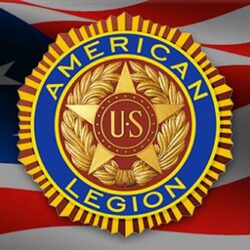White Ribbon VA is a national call to action to eliminate sexual harassment, sexual assault and domestic violence in VA facilities and surrounding communities by promoting positive change in organizational culture.
VA is committed to ensuring that all who enter our facilities or conducts business of any kind with VA are treated with dignity and respect, free from harassment, sexual assault or discrimination. White Ribbon VA is critical in raising awareness about this national issue and it creates an opportunity to join forces with partnering organizations to respond to sexual violence, show support and share resources to survivors.
VA’s community partners provide information and resources to survivors. This is why these organizations join forces with VA in the White Ribbon VA Campaign:
National Association of Social Workers
American Psychological Association
American Psychiatric Association
American Counseling Association
American Association of Marriage and Family Therapy
“Within the realm of compassion and empowerment, the American Counseling Association embraces the partnership with VA and the White Ribbon VA program as a powerful catalyst for change. We stand shoulder to shoulder, advocating for the eradication of violence and the cultivation of healthy relationships,” said Shawn E. Boynes, CEO, American Counseling Association. “Together, we weave a tapestry of support and understanding, guiding individuals towards a future where every ribbon signifies hope, respect and a world free from violence.”
White Ribbon movement is groundwork for meaningful reform
“APA is proud to take part in the VA White Ribbon Campaign, sharing the mission to end gender-based violence and discrimination. Advocacy begins with awareness and understanding, and the White Ribbon movement is laying the critical groundwork for meaningful reform,” said Katherine B. McGuire, chief advocacy officer, American Psychological Association.
Sexual harassment and sexual assault can have profound and lasting effects on survivors. Each person’s recovery journey is different and, for many, support from family, friends, clergy and others helps greatly. Not everyone needs to connect with formal sources of help, but for those who need it, here are some professional sources of help that some survivors find helpful in moving forward after sexual assault or harassment experiences.
1. Medical care
Addressing any physical injuries or after-effects from the experiences of sexual assault is crucial. Seeing a medical provider for this type of help, even if you don’t feel comfortable sharing what led to the injuries, is important to make sure you are physically ok and that any potential issues don’t become bigger problems.
2. Individual therapy or counseling
Professional help in the form of therapy or counseling can be a crucial component of the recovery process after sexual assault or harassment. Therapy or counseling sessions can provide a safe space for survivors to reflect on their reactions to what happened, how their experiences impacted them and how they are currently coping.
3. Therapy or support groups
Therapy or support groups can offer survivors a sense of community and understanding that they may find healing. Sharing experiences with others who have faced similar challenges can help reduce feelings of isolation. Support groups can be found both online and at in-person settings. For more information, visit here.
4. Crisis hotlines
Crisis hotlines can be another important source of support for survivors, providing assistance and a supportive person to talk to in moments of distress. Becoming familiar with key hotline numbers and keeping them at close hand can be a key tool for survivors in negotiating recovery.
Veterans Crisis Line: Dial 988 (then press 1) or text 838255
National Domestic Violence Hotline: 1-800-799-SAFE (7233)
Sexual Assault/Abuse: 1-800-656-HOPE (4673)
5. Reporting to law enforcement or other appropriate authorities
Not all survivors will feel comfortable reporting their experiences to authorities, but for some it can be a helpful part of moving forward. VA understands that sharing sexual assault and harassment experiences can be difficult, but VA has implemented changes to try to make it easier for survivors to report any experiences of sexual assault or harassment they may experience at our facilities. Reports of experiences help VA address the problem and ensure that our environment is safe for everyone who walks through our doors. Here is more information on reporting incidents.
Resources:
https://www.mentalhealth.va.gov
https://www.va.gov/health-care/health-needs-conditions/mental-health/
https://www.socialwork.va.gov/IPV/Index.asp
https://www.psychiatry.org/patients-families/domestic-violence
https://www.psychiatry.org/patients-families/la-salud-mental/violencia-de-pareja
Together, we will combat sexual harassment, sexual assault and intimate partner violence in VA facilities and communities. We encourage Veterans, VA employees and the community to support ending sexual violence against others by taking the White Ribbon VA pledge.
